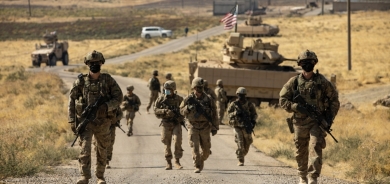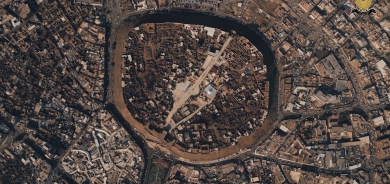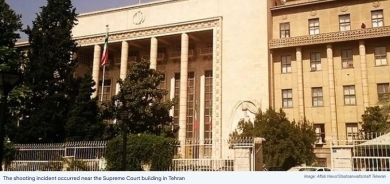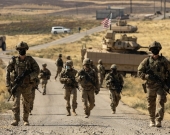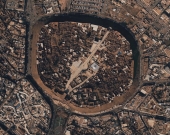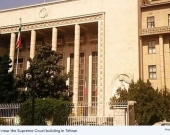Karzai tells US to 'stop harassing' Afghanistan

"Afghanistan is a sovereign country. If the Afghan judicial authorities decide to release the prisoners, it is of no concern to the US and should be of no concern to the US," Karzai told reporters in Ankara.
"I hope that the United States will stop harassing Afghanistan's procedures and judicial authority".
The release of the prisoners on Thursday dealt a new blow to he relationship between Kabul and Washington, already badly strained by Karzai's refusal to sign an accord allowing some US troops to remain in Afghanistan after NATO's withdrawal this year.
The US said those who walked free were responsible for killing NATO and Afghan soldiers as well as civilians. The US embassy in Kabul called the releases "a deeply regrettable" move that could lead to further violence in Afghanistan.
NATO head Anders Fogh Rasmussen also criticised the releases as a setback to security and the rule of law in Afghanistan.
Karzai has called Bagram prison, 50 kilometres (30 miles) north of Kabul, where the men were held, a "Taliban-producing factory" and alleged that some detainees were tortured into hating their country.
According to some analysts, Karzai hopes the releases could help kick-start moribund peace talks with the Taliban, who were ousted from power in 2001.
"The very presence of the Bagram prison is against the Afghan law and Afghan sovereignty," Karzai said, after meeting Turkish President Abdullah Gul and Pakistani Prime Minister Nawaz Sharif in Turkey's capital.
Karzai said the prison was one of the most contentious issues between Kabul and Washington since 2007 because the United States judges the inmates there "prisoners of war, therefore ... outside of the judicial authority of Afghanistan".
"My government has been trying since then to remove this prison from US control and to turn it into an Afghan facility in accordance with Afghan laws and in accordance with Afghan sovereignty."
Since 2007, the leaders of Afghanistan, Pakistan and Turkey have met regularly in a bid to bolster cooperation against extremist groups.
Karzai has long accused Pakistan of sheltering Taliban militants waging an insurgency against his government.
Last month, Kabul reignited traditional cross-border suspicions by suggesting Islamabad's spy agency was behind an attack on a Lebanese restaurant in the Afghan capital which killed 21 people, including 13 foreigners.
Taliban insurgents claimed responsibility for the January 17 suicide assault, the deadliest attack on foreign civilians since the Taliban were ousted in 2001.
Afghan and Pakistani leaders held "frank" and "very detailed" discussions on the issue of sheltering Taliban, Karzai said.
"We have not yet found a way out".
- 'On the same page' -
Karzai, who is due to step down after presidential elections on April 5, is pushing for Pakistan to help start peace talks with the Taliban.
Pakistan's objective is to "wholeheartedly support the peace process in Afghanistan," Sharif said.
"We are on the same page as far as these issues are concerned," he said, adding that progress was made in addressing differences between the two neighbouring countries.
Pakistan is seen as crucial to peace in neighbouring Afghanistan as it was a key backer of the hardline 1996-2001 Taliban regime in Kabul.
Since Sharif's election last year, Pakistan has tried to build ties with Afghanistan.
Karzai is also under US pressure to sign a security deal with Washington that would allow about 10,000 troops to stay in the country after this year.
The supporters of the pact say it is crucial to Afghanistan's stability after the draw-down of NATO forces by December 31, 2014.
Karzai however stressed that peace was a "pre-requisite" before any deal could be signed.
AFP


